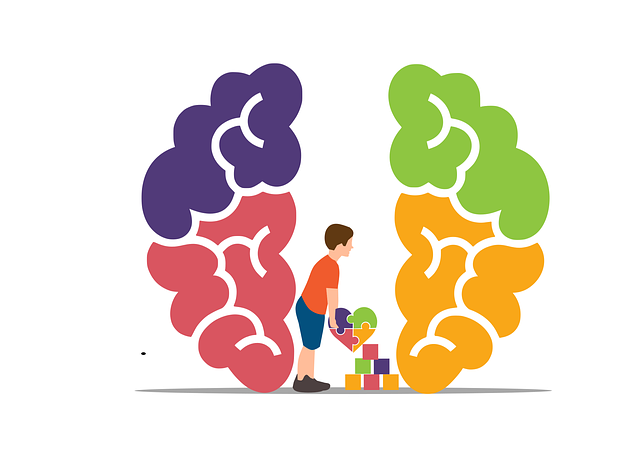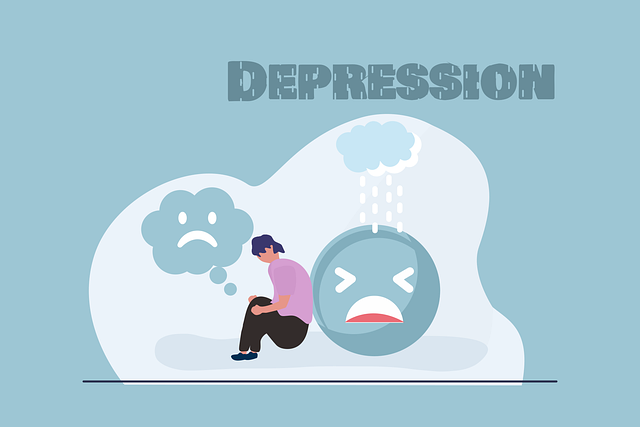Littleton Biofeedback Therapy, backed by research, offers Mental Wellness Coaching Programs that combine positive thinking exercises with biofeedback technology. This approach enhances emotional well-being, reduces stress and anxiety, cultivates optimism, and builds resilience. Proven techniques like Mindfulness Meditation, alongside workshops, empower individuals to manage challenges, boost confidence, and achieve greater life satisfaction, aligning with mental health policy advocacy efforts.
Positive thinking, a powerful tool for mental well-being, can transform lives. In this article, we explore how implementing positive thinking exercises, with techniques like Littleton Biofeedback Therapy, can significantly impact your health and happiness. We’ll delve into the science behind it, demonstrate its practical application, and highlight various benefits observed in real-world scenarios, making it a game-changer for personal growth and stress management.
- Understanding Positive Thinking and its Impact
- Implementing a Positive Thinking Exercise with Littleton Biofeedback Therapy
- Benefits and Real-World Applications of This Practice
Understanding Positive Thinking and its Impact

Positive thinking is a powerful tool for enhancing mental wellness and overall life satisfaction. It involves cultivating optimistic beliefs and attitudes, focusing on personal strengths, and perceiving challenges as opportunities for growth. When individuals embrace positive thinking, they can reduce the negative impact of stress, anxiety, and depression. Research suggests that this mindset shift can lead to improved physical health, better decision-making abilities, and increased resilience in navigating life’s ups and downs.
At Littleton Biofeedback Therapy, we understand the profound effects of positive thinking on one’s well-being. Our Mental Wellness Coaching Programs Development focuses on empowering individuals with effective communication strategies to foster a positive mindset. Through Crisis Intervention Guidance, we help clients navigate difficult situations and develop coping mechanisms that promote mental clarity and emotional resilience. By integrating these techniques, our programs aim to transform lives, enabling folks to embrace a more optimistic outlook and thrive in a busy, often challenging world.
Implementing a Positive Thinking Exercise with Littleton Biofeedback Therapy

Implementing a Positive Thinking Exercise with Littleton Biofeedback Therapy can significantly enhance emotional well-being promotion techniques. This innovative approach combines traditional positive thinking practices with advanced biofeedback technology, enabling individuals to gain greater control over their mental health. By integrating Littleton Biofeedback Therapy into daily routines, users can learn to manage stress and cultivate a more optimistic outlook, which is crucial in the context of mental health policy analysis and advocacy.
Such exercises not only promote individual well-being but also serve as effective burnout prevention strategies. Through regular practice, individuals can improve their ability to navigate life’s challenges with resilience, thereby reducing the risk of chronic stress and its associated mental health issues. This holistic approach aligns with broader efforts in the Mental Health Policy Analysis and Advocacy space, aiming to create more comprehensive support systems that prioritize emotional well-being.
Benefits and Real-World Applications of This Practice

The practice of positive thinking exercises has been shown to have numerous benefits for mental and emotional well-being. Regular implementation can lead to a significant confidence boosting effect, helping individuals navigate challenges with renewed perspective and resilience. By focusing on optimistic thoughts and reframing negative ones, people can experience reduced stress levels and improved overall satisfaction with life.
In real-world applications, Littleton Biofeedback Therapy has gained recognition for its effectiveness in integrating positive thinking exercises into therapeutic practices. These sessions often incorporate techniques such as Mindfulness Meditation, guiding clients to achieve a state of calm and clarity. This approach not only enhances coping mechanisms but also empowers individuals to manage stress effectively, fostering a healthier and more balanced lifestyle. Such workshops organized by Stress Management Workshops Organization have proven successful in helping folks from all walks of life improve their mental fortitude and overall quality of living.
The implementation of positive thinking exercises, such as those facilitated by Littleton Biofeedback Therapy, offers a powerful tool for enhancing mental well-being. By integrating these practices into daily routines, individuals can experience improved resilience, reduced stress, and increased life satisfaction. The benefits are vast, from better decision-making to enhanced relationships, making this approach a valuable asset in navigating the challenges of modern life. Incorporating positive thinking into one’s routine is a simple yet transformative step towards a happier, healthier mind.














